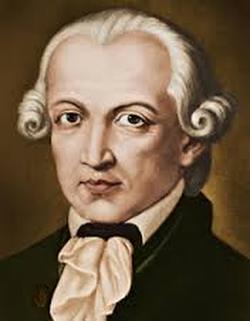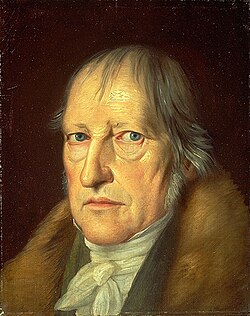Timeline of thinkers
16th century
Nocollò Machiavelli

NICOLLÓ MACHIAVELLI: -His thoughts are similar to the Renainsence's ideology. -The end justifies the means in order to preserve total authority: a principle that we can see in his literary work The Prince. -Strengthen despot's power. -Progress of the society depends on human's decisions and not in divine forces. -Politics doesn't has nothing to do with etics or religion. The Prince: It is his main literary work, in this book we can find several ideas of how he thought a monarch should be. Moreover, he believed humans have the capacity to decide his future, doesn't matter fortune.
Jean Bodin

JEAN BODIN:-He wanted to impose religious tolerance.-He wanted to strenghthen monarquical power.-Absolute monarquies: the person who gets this power must be obeyed by everyone. -However, he also believed that the king should respect divine and natural laws. -Moreover, he maid several economic studies. He thought prices grew up mainly due to a raise in the amount of gold and silver. The six books of Republic: In it, he conceives the family as the esential base of the Estate. The State's authority figure should be similar to the one of the father of a family.
17th century
Hugo Grotius

HUGO GROTIUS: -He is very related to the field of justice.-He believed that justice had to be dialed from the point of view of reason and that this way it would be possible to put an end in the disputes between the different nations and religions of Europe. -He also defended natural law as objective, so he thought it was a concept that went apart from divine law. -He explained the ius gentium as the power or faculty to act with ethics.De jure belli ac pacis:He published this book in a time in which Europe was very divided because of religious disputes. In it he tried to impose a system of law common for all Europe, including one for times of war.
Thomas Hobbes

THOMAS HOBBES:-He thought the natural state of humans was a state of conflict in which each persondepends on his or her own strength and ingenuity for being safe. -He believed that, in order to manage peace, people were inspired by their instinct of survival:natural laws. 1st law of nature: search ofpeace if its obtaining is possible. 2nd law of nature: capacity of renouncing to ones rights in order to manage the establishment of an agreement. 3rd law of nature: compliance of the pacts and acceptance of their consequences. -He defends political absolutism; the sovereign exerts all the powers. -Once the sovereign has been chosen, his form of government must be accepted by everyone. In his book Leviathan, he defends all the previous ideas.
John Locke

JOHN LOCKE:-He opposes innatism: there are no common principles to everyone, and he demonstrates it with the experience. -All ideas come or derive from experience: Empiricism.-Words represent universal ideas, I mean, the ideas are the same for everyone, but the word we use for expressing that idea depends on the language.-We create words a part from experiences.-Knowledge results from the mental connection and association of ideas. -He stablishes three types of knowledge: intuitive, demonstrative and sensible.Two treatises on government:In this book he criticises an idea that had been previously criticied by Hobbes: natural state. He believed that although in a beginning all humans were free, justice is necesary in order to avoid conflicts and that it is for the good of each person.
18th century
Montesquieu

MONTESQUIEU:-His ideology is the icon of the French illustration. -He thought that humans should search their liberty and that they would be able to find it only if the power of absolute monarchs is limited. -He defended the tolerance between religions.The spirit of laws:In thisliterary work he defends the division of the State in three powers: 1. Legislative:elaborates the laws (Parliament).2. Executive:applys laws (Goverment). 3.Judicial: in charge of the compliance of laws (Courts).
Jean- Jacques Rosseau
.jpg/200px-Jean-Jacques_Rousseau_(painted_portrait).jpg)
ROSSEAU:-State of Nature:he thought that humans in their origin were good, they hadn’t original sins and all were equal between them.-State of Society:humans progress and he believed this progress has been detrimental. Humans are not a good as they were and now they aren’t equal (clear differences between rich and poor, kings and peasants,slaves and owners…).-He believed it was necessary to come back to that State of Nature through education and criticizes illustrated system of education. SocialContract:In this literary work he proposes a system by which humans are able to come back to that Natural State without going away from community life. In order to manage it, the sovereign exerts all the powers in favor of the community.
Voltaire
_-001.jpg/220px-Nicolas_de_Largilli%C3%A8re,_Fran%C3%A7ois-Marie_Arouet_dit_Voltaire_(vers_1724-1725)_-001.jpg)
VOLTAIRE:-He criticizes the method of education based in memorizing, and thought it was necessary more practice in order to improve society. -Strengthened experimentation. -Believed it was necessary a reform in society, to ensure people’s liberty and comfort.-Admired the parliamentary system used by England against the monarchical absolutism of France.-Proposed a moderated system of collection of tributes.
Thomas Paine

THOMAS PAINE:-He appeals to the use of the common sense (about what he wrote a pamphlet), because he disagree in the relations with Britain. -Proposed universal suffrage, without mattering, sex, nationality…-Defended a parliamentary democracy.-He collaborated in the Declaration of Man’s Rights in the American Constitution (the first ofthe world).-He believed that individual liberty, defense of the nation and respect of the neighbor were necessary in order to maintain a comfort live in community.Standout his literary works Common Sense and Man’s Rights.
Late 18th and early 19th century
Immanuel Kant

IMMANUEL KANT:-Categorical Imperative.-He defended that people should act according to common will.-Laws should also respect this criterion (categorical imperative).-Happiness mustn’t motivate the way of acting of a person because it depends of each ideology.In his essay "Theory and practice" Immanuel Kant defens his ideology and puts solutions to the criticism of people who thought his theory was unrealistic and too difficult to put on practie.
Johann Guttfried Herder

JOHANN HERDER:-He believed language characterized humans. -Considered one of the precursors of the German nationalism, because of his theory that human evolution depends on the geographical situation.
Mary Wollstonecraf

MARY WOLLSTONECRAFT:-She argued that in order to obtain social equality society must rid itself of the monarchy as well as the church and military hierarchies.-She believed that the rights of men and the rights of women should be the same. -All people, without mattering sex, have the right and liberty to think and defend its own ideas. One of her most important literary works is A vindication of the rights of women, a book in wich she defended why men and women should be equal.
Benjamin Franklin

BENJAMIN FRANKLIN:-He wanted the United States to independ from England.-He argued the stablishment of a democracy in America.-Pushed for the unification of the American colonies as one nation against England.-“Rebellion against tyrants is obedience to God.” -He signed both the Declaration of Independence and the U.S. Constitution.
Thomas Jefferson

THOMAS JEFFERSON: -He defended main ideas of enlightment: reason, liberty and equality; and thought they were esential to govern a nation.-He valued reason above faith.-He wrote the declaration of Independence.-He thought that all men are endowed with “certain inalienable rights.”-Individual freedom has its limits in the freedom of another individual.-He defended the abolishion of slavery; however, he was a slaveowner and thought black people was infirior to White people.
19th century
George Hegel

GEORG HEGEL:-He thought people should learn from ideas they dislike and from their intellectual enemies.-Dialectic: he thought that during progress it’s able to find solutions to mistakes of the past.-Art has a purpose: it’s not a matter of just creating beautifulness. -He argued that it was necessary the creation of new institutions. In his book“the phenomenology of Spirit” he exposes his thoughts about dialectic and slavery of spirit.
